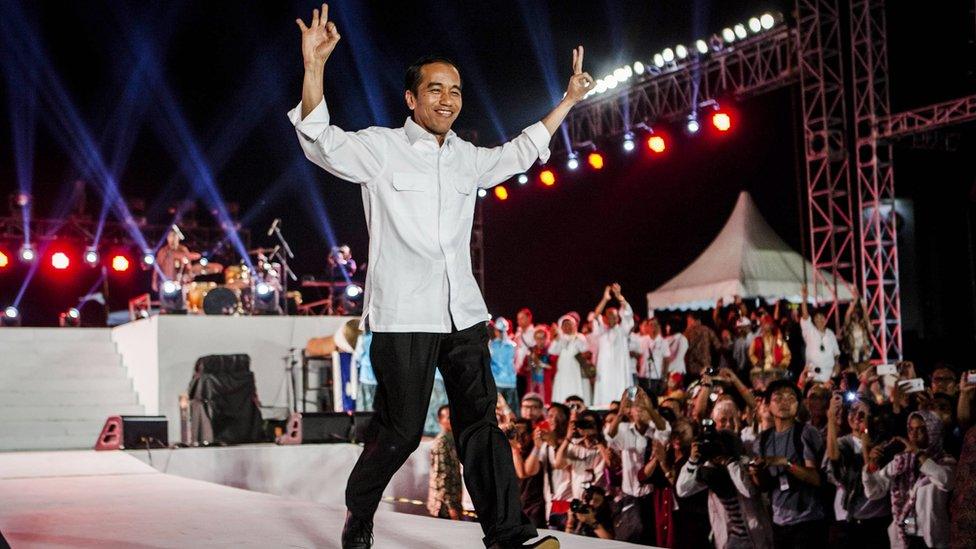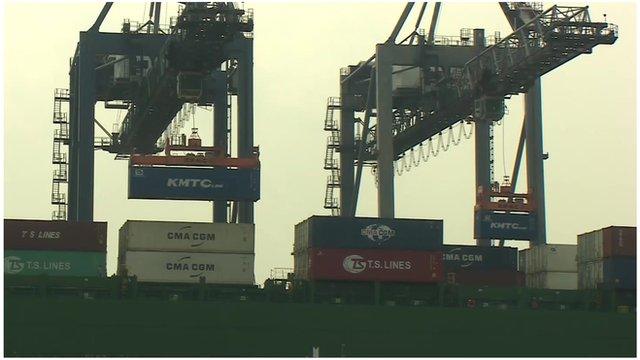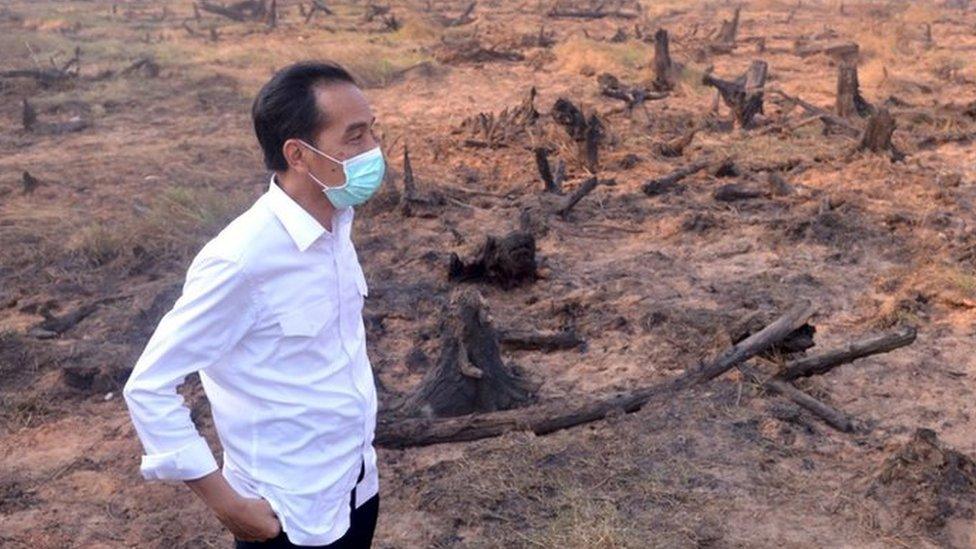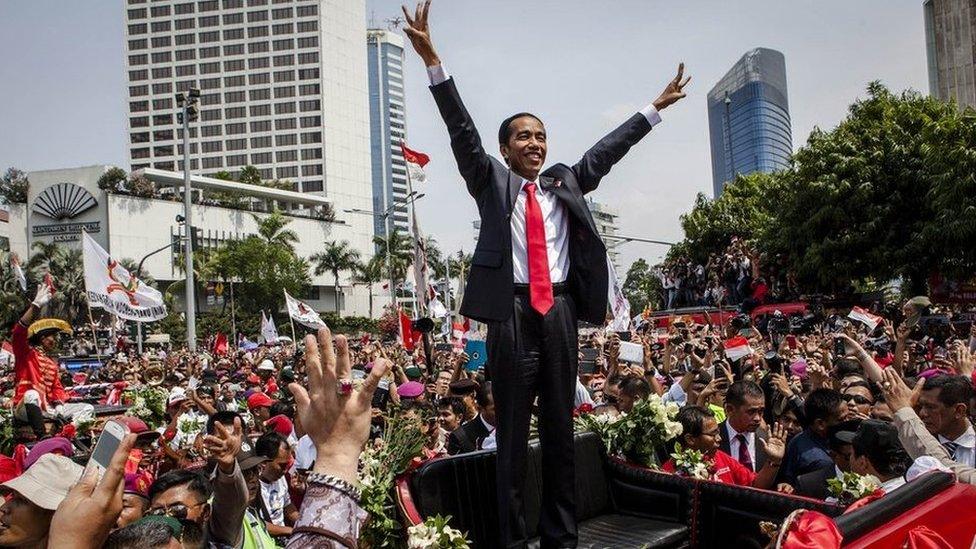Has Indonesia's president lived up to expectations?
- Published
Joko Widodo: "We are spending more on infrastructure"
I have interviewed the Indonesian President Joko Widodo three times - first as the governor of Jakarta, then as a presidential candidate and this week as the leader of the world's most populous Muslim country and the biggest economy in South East Asia.
Read more: Indonesia 'needs time' to tackle haze - Joko Widodo
An outsider in Indonesian politics, there were high expectations that he would change the culture of cronyism that has held Indonesia back for so long.
But what a difference a year makes. Mr Widodo has spent the better part of the last 12 months putting out political fires - at times within his own party - and that's meant he's struggled to push through some of his key economic reform plans.
A year into his term, has Indonesia's president brought growth?
Critics say he has had to kowtow to the grand dame that is the head of his party and is her puppet. At times, he has seemed unable to control his cabinet - which has often contradicted his policies on foreign investment, and on the ease of doing business in Indonesia.
It's also been hard to reconcile his previously loud protestations of being an advocate of democracy with some of the more draconian measures his government has taken, like the executions of foreign drug convicts - that for now appear to have been suspended for this year because of economic priorities - or the detention of foreign journalists on immigration issues.
Although during the interview he appeared to put on a show of confidence about his handling of the economy - currently his administration's biggest headache - he was short on specifics and dismissed concerns that he has disappointed his supporters by saying that Indonesia is a big country and it takes time to fix the many problems it has.
A lot at stake
That may be true but overwhelmingly the mood amongst investors and businesses I met in Jakarta was one of exasperation. When will the president stop talking and start acting, many asked me. When I put that to the man himself - he assured me in his calm Javanese manner that his plans to boost infrastructure spending were already under way and showing results.
He expects that by the end of his term Indonesia would be a vastly more improved economy than it is today.
There's a lot at stake - both for Mr Widodo and for the Indonesian economy.

Joko Widodo was sworn in as Indonesia's president in October 2014, promising to boost the country's growth
It is the giant in the neighbourhood but consistently punches below its weight. Growth is slowing down after a decade long commodities boom, and without more of an investment in infrastructure and human capital it could slow further.
Mr Widodo will not be unaware that mismanagement of the economy has often been the downfall of presidents who have come before him.
It was after all the 1997/1998 Asian Financial Crisis that saw the Indonesian rupiah tumble and prices soar that - amongst other factors - forced the former dictator and president Suharto to step down.
The Indonesian people are infamously patient and forgiving - but Mr Widodo will need to act quickly and decisively to ensure he doesn't lose their support.
- Published30 September 2015

- Published29 September 2015

- Published13 February 2024

